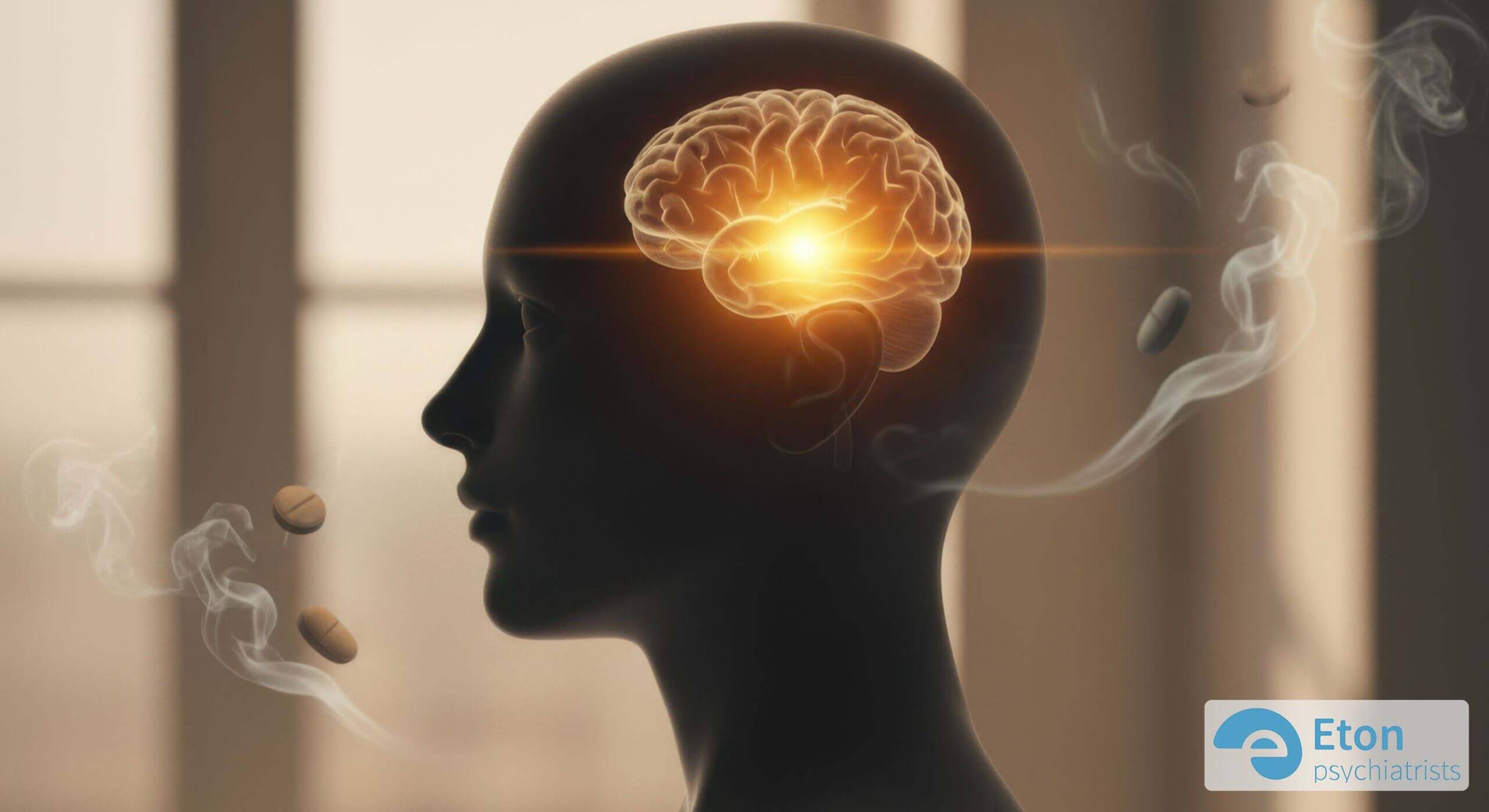
New Study Reveals Why ADHD Needs More Attention Now
Listen to the Article
For those on the go or who prefer listening, you can play the full audio version of this deep dive below.

Attention Deficit Hyperactivity Disorder (ADHD) is often discussed in terms of its impact on focus, organisation, and daily functioning. However, a growing body of research, including landmark studies, highlights a far more serious consequence: untreated ADHD is associated with significantly increased risks to long term health and even a potentially reduced life expectancy. This is not meant to cause alarm, but to underscore the profound importance of recognising ADHD not just as a challenge, but as a serious health condition requiring timely diagnosis and effective management. Understanding the long term effects of ADHD and the pathways through which these risks emerge is crucial for individuals, families, and healthcare providers alike.
Table of Contents
- The Sobering Link: ADHD and Life Expectancy
- Impulsivity and Risk Taking Behaviours
- ADHD and Accidents: A Heightened Risk
- ADHD and Addiction: The Vulnerability to Substance Abuse
- ADHD and Comorbid Conditions: A Complex Web
- Mitigating the Risks: The Power of Diagnosis and Treatment
- Why Trust Eton Psychiatrists?
- Summary
- Sources
- Frequently Asked Questions
The Sobering Link: ADHD and Life Expectancy
Perhaps the most startling finding comes from research led by Dr. Russell Barkley, a leading expert in ADHD. His long term studies suggest a potential link between ADHD and reduced life expectancy. While the exact figures are debated and depend on various factors, the underlying message is consistent: the cumulative impact of ADHD related challenges across multiple life domains can significantly affect overall health and longevity. Why? It is not the ADHD itself that is directly life shortening, but rather the increased vulnerability to a range of secondary health problems and risky behaviours when the condition is left untreated or poorly managed.
Impulsivity and Risk Taking Behaviours
Impulsivity, a core symptom of ADHD, plays a significant role in these increased risks. This trait involves acting hastily without fully considering the consequences. In daily life, this can manifest in various ways:

- Financial Impulsivity: Leading to debt, unstable housing, or poor financial decisions.
- Social Impulsivity: Difficulty maintaining relationships, risky social choices.
- Sensation Seeking: A higher drive for novel and intense experiences, which can sometimes involve dangerous activities.
- Poor Health Choices: Impulsive eating habits, inconsistent adherence to medical advice, or delaying seeking healthcare.
This tendency towards ADHD and risk taking increases the likelihood of encountering situations with negative health outcomes.
ADHD and Accidents: A Heightened Risk
Difficulties with attention regulation and impulsivity also contribute to a higher rate of accidents among individuals with ADHD. This includes:
- ADHD and Car Accidents: Studies consistently show that drivers with ADHD, particularly when untreated, have a higher risk of traffic violations and accidents due to distractibility, impatience, and slower reaction times.
- Workplace Accidents: Inattention can lead to mistakes and injuries, especially in roles requiring sustained focus or operating machinery.
- Household Accidents: Forgetfulness or distraction can increase the risk of incidents like leaving stoves on or falls.
These ADHD and accidents statistics underscore the real world safety implications of difficulties with attention and impulse control.
ADHD and Addiction: The Vulnerability to Substance Abuse
The link between ADHD and addiction is well established. Individuals with ADHD have a significantly higher risk of developing substance use disorders compared to the general population. There are several contributing factors:

- Self Medication Hypothesis: Some individuals may unconsciously use substances (like caffeine, nicotine, alcohol, or illicit drugs) to temporarily alleviate ADHD symptoms like restlessness, low mood, or poor focus.
- Impulsivity: Difficulty inhibiting impulses can make individuals more prone to experimenting with substances and developing problematic use patterns.
- Dopamine Dysregulation: ADHD involves differences in the brain’s dopamine reward pathways. Substance use provides a potent dopamine surge, which can feel particularly reinforcing to an ADHD brain, increasing addiction potential.
Understanding the connection between ADHD and substance abuse highlights the importance of integrated treatment that addresses both conditions.
ADHD and Comorbid Conditions: A Complex Web
ADHD rarely exists in isolation. ADHD and comorbid conditions are the norm rather than the exception. Common co occurring psychiatric conditions include:
- Anxiety Disorders: Generalised anxiety, social anxiety, and panic disorder are very common.
- Mood Disorders: Depression and bipolar disorder frequently co occur with ADHD.
- Learning Disabilities: Such as dyslexia or dyscalculia.
- Autism Spectrum Condition: There is significant overlap and comorbidity between ADHD and Autism.
These co occurring conditions contribute to the overall burden on mental and physical health. Furthermore, untreated ADHD itself increases the risk of developing certain physical ADHD and health problems, potentially linked to chronic stress, poor sleep, inconsistent lifestyle habits, and shared genetic factors. There is also a concerning association between ADHD and suicide risk, often mediated by the severity of comorbid depression, impulsivity, and feelings of hopelessness stemming from untreated symptoms.
Mitigating the Risks: The Power of Diagnosis and Treatment
The untreated ADHD consequences outlined above paint a concerning picture, but it is crucial to understand that these risks are significantly reduced with appropriate diagnosis and management. Effective treatment acts as a powerful protective factor.

- Medication: When used appropriately under medical supervision, ADHD medication effectively targets core symptoms of inattention and impulsivity, reducing risky behaviours and improving daily functioning. Studies show medication adherence is linked to lower accident rates and reduced substance use risk.
- Therapy (CBT/DBT): Therapeutic approaches teach coping strategies for managing impulsivity, emotional dysregulation, time management, and organisational challenges.
- Coaching: Provides practical, real world support for implementing strategies and achieving goals.
- Lifestyle Management: Developing healthy routines for sleep, nutrition, and exercise supports overall well being and ADHD symptom management.
Seeking help is not just about improving focus; it’s about safeguarding long term health and well being.
Why Trust Eton Psychiatrists?
At Eton Psychiatrists, we understand the serious implications of untreated ADHD. As a specialist clinic, we provide comprehensive, NICE guideline compliant assessments led by experienced Consultant Psychiatrists. We don’t just diagnose; we develop personalised, evidence based treatment plans that address the core symptoms and associated risks, empowering our clients to manage their ADHD effectively and invest in their long term health. We recognise the urgency and provide timely access to expert care.
Summary
- Serious Health Implications: Untreated ADHD is linked to significant long term risks, including potentially reduced life expectancy, due to increased vulnerability to secondary problems.
- Impulsivity & Risk Taking: Core ADHD symptoms like impulsivity contribute to risky behaviours affecting finances, relationships, health choices, and accident rates (including car accidents).
- Addiction Vulnerability: Individuals with ADHD have a much higher risk of substance use disorders, often stemming from self medication, impulsivity, and dopamine dysregulation.
- Comorbidity is Common: ADHD frequently co occurs with anxiety, depression, and other conditions, increasing the overall health burden and suicide risk if left unmanaged.
- Treatment is Protective: Early diagnosis and effective, multi modal treatment (medication, therapy, coaching, lifestyle) significantly mitigate these long term risks and improve overall health outcomes.
Sources
Frequently Asked Questions
Does ADHD really shorten your life expectancy?
Research suggests a correlation between untreated ADHD and factors that can reduce life expectancy, primarily due to increased risks of accidents, substance abuse, comorbid health conditions, and potentially suicide. It’s not the ADHD itself, but its unmanaged consequences. Effective treatment significantly mitigates these risks.
Are people with ADHD more likely to have accidents?
Yes, studies show individuals with untreated ADHD have a higher statistical risk of various accidents, including car accidents, workplace incidents, and household mishaps. This is linked to symptoms like inattention, distractibility, and impulsivity. Treatment often helps reduce this risk.
Why is there a link between ADHD and addiction?
Several factors contribute: the tendency to self medicate ADHD symptoms (like low mood or restlessness) with substances, increased impulsivity making experimentation more likely, and differences in the brain’s dopamine reward system which can make substance use feel more reinforcing.
Does treating ADHD prevent these long term problems?
While treatment doesn’t guarantee prevention, it significantly reduces the risks. Managing core ADHD symptoms through medication, therapy, and coaching improves decision making, reduces impulsivity, enhances attention, and supports healthier lifestyle choices, all of which contribute to better long term health and safety outcomes.



